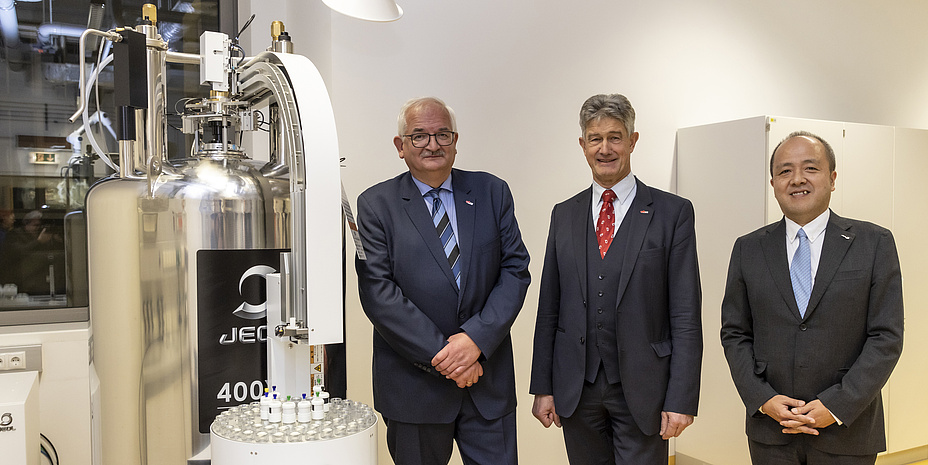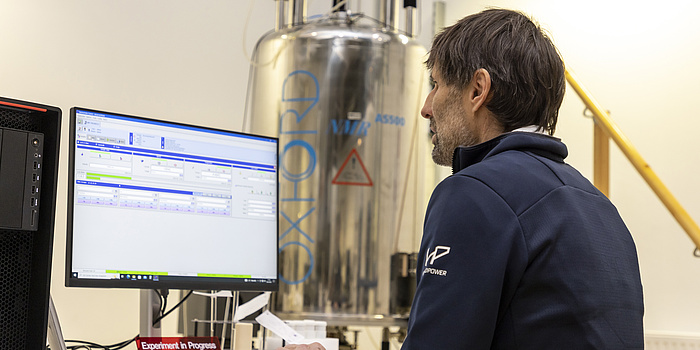New Spectrometers for TU Graz Chemistry

Basic research, applied research and cooperation projects with companies are part of the research programme of the Faculty of Technical Chemistry, Chemical and Process Engineering and Biotechnology at TU Graz. And for all these examinations, the institutes need a wide variety of analytical equipment. For example, NMR (nuclear magnetic resonance) devices and mass spectroscopes. Just such indispensable analytical equipment has now been made available to the faculty by the Japanese company JEOL (Japan Electron Optics Laboratory), the world’s leading manufacturer of electro-optical equipment. Together, they are currently building the JEOL Application Lab in a long-term cooperation agreement, in which high-quality state-of-the-art infrastructure with a net value of 1.33 million euros was officially and ceremonially put into operation at the beginning of January 2023. The costs are shared equally by TU Graz and JEOL. In return, TU Graz will provide the company with feedback on possible software problems and make suggestions for further hardware developments. The devices are used for the chemical characterization of compounds and (bio)materials.
New laboratory infrastructure
This infrastructure includes two completely new analytical devices and one refurbished or redesigned device.
The 400 megahertz NMR spectrometer is completely new in the laboratory equipment. It is equipped with a long-hold magnet and a powerful auto-sampler and is thus primarily used for routine measurements of molecular samples from the faculty’s synthesis and biology laboratories. “In this way, we can check whether the molecules we have built are really constructed as we thought,” explains Dean Frank Uhlig. In another device, a 500 megahertz NMR spectrometer, a JEOL console was added to the existing Oxford magnet. The spectrometer can now be used for complicated structure elucidation problems.
Both units have Royal HFX sample heads with automated tuning and matching – so time-consuming manual night adjustment is no longer an issue. Thus, on the low-frequency channels, all nuclei between 15N and 31P can be selected by mouse click and, in dual mode, proton and fluorine-decoupled 13C spectra can be measured simultaneously.

A special plus of the new devices is that the magnets of the spectrometers are cooled with liquid helium, which has experienced a massive price increase over the last year. Older devices needed up to four refills a year but the new spectrometers get by for a whole year without new helium.
JEOL mass spectrometer
The mass spectrometer in the JEOL Applications Lab is also completely new. The “AccuTOFTM GC-Alpha” is a time-of-flight mass spectrometer with orthogonal acceleration and two-stage reflectron, offering high sensitivity, excellent resolution and mass accuracy of less than 1 ppm (parts per million), as well as very fast data acquisition. The system has several ionization methods (EI, FI, FD) and sample inlet systems (GC with auto-sampler, direct inlet, pyrolyser), and powerful software for control and sophisticated data analysis (msFineAnalysis).




